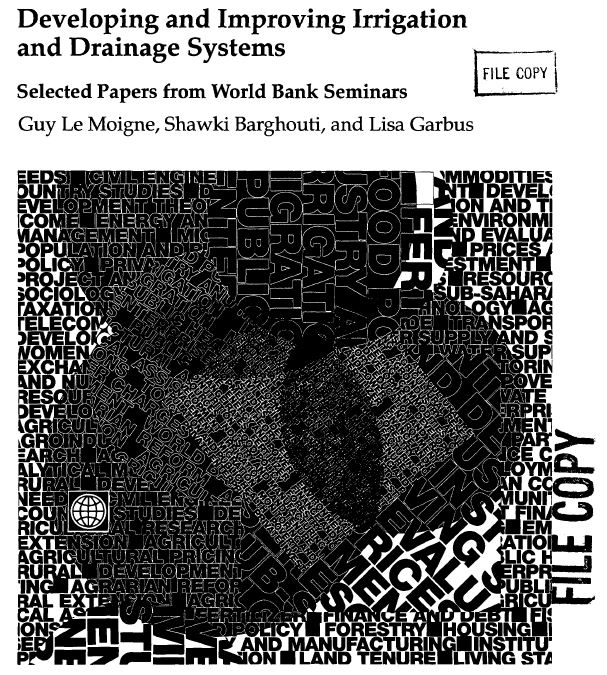developing and improving irrigation and drainage system
The World Bank efforts in Operations and PRS [OSP] will be only a modest part of what the developing countries themselves and other external support agencies do in irrigation and drainage in the 1990s. However, there are many areas in which we should promote action. To identify these areas, let me return briefly to the OED studies. One view is that if evaluation measures used now had been used in the 1980s, we would have had a much weaker overall record for irrigation and drainage projects for all of the 1980s. That is all the more reason why we should be aware of the many obstacles to improved performance and the actions that need to be taken. These actions include the need to: 1) focus attention on efficiency in water use. Excess availability and free or heavily subsidized supply have been disincentives to efficient use in many parts of the world; 2) be aware that technological innovations to enhance efficiency require time for generation, local testing, and adoption. The question, then, is, Will the short-term project approach enable us to promote a program of technological research and development?; 3) consider long-term environmental costs in activities with short-term horizons. Similar problems arise with regard to sustainability; 4) establish innovative arrangement and improved cost-recovery measures. Fiscal conditions in some countries constrain investments in maintenance, and we simply cannot repeat past mistakes by ignoring maintenance of existing systems while rushing into the construction of new systems. It is also not easy to achieve the integration of the different interests in water, now organized along sectoral lines. We therefore face a major challenge: to confront the question of efficient and sustainable use of water in an integrated fashion and then to convince the borrowing countries that it is in their interest to approach the next century with a more integrated view. Political and institutional constraints in this exercise are formidable, but we cannot afford to wait because we have already started too late.
